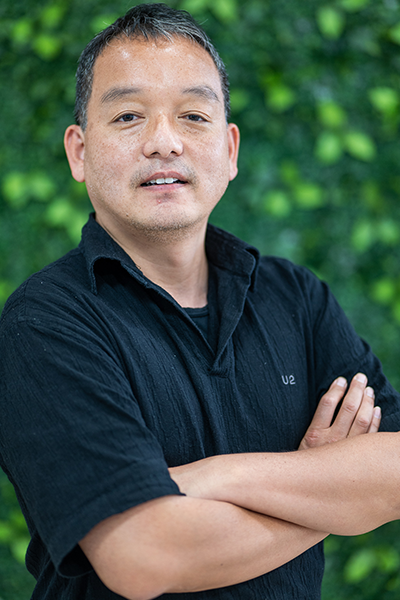Kwan Lee, 2024-2025 Wimmer Fellowship recipient
Monica Sumbi
Aug 14, 2024
Kwan Lee, instructor at CMU-Africa, has been named a 2024–2025 Wimmer Faculty Fellow by Carnegie Mellon University’s Eberly Center. The Wimmer Fellowships are made possible by a grant from the Wimmer Family Foundation and are designed for junior faculty members interested in enhancing their teaching through concentrated work designing or re-designing a course, innovating new materials, or exploring a new pedagogical approach. Fellows work in close collaboration with Eberly Center colleagues and receive a stipend to acknowledge the work it takes to improve one's effectiveness as an educator.
Lee is revising his junior-level core course, "Advanced Academic Skills for Engineers," at CMU-Africa to enhance students' foundational skills through a workshop-style approach. Traditional lectures will be replaced with task-based activities and peer learning sessions that emphasize real-time feedback and skill practice. This method aims to foster a mindset shift from assignment completion to skill acquisition. The redesigned course will include systematic workshops on presentation design, research gap identification, and writing problem statements, among others.
Q&A with Kwan Lee

What was your motivation for applying for the Wimmer Fellowship
In my role supporting students' academic success, I have always sought ways to make my course impactful. One of the questions I grapple with is how to ensure students continuously develop and utilize their learning throughout and beyond their academic journeys at Carnegie Mellon University Africa. The Wimmer Fellowship presents a timely opportunity to explore methods for transforming teaching to address the local context effectively.
What does your project entail?
My project aims to revolutionize the learning experience for students by helping them acquire foundational skills such as effectively communicating complex technical concepts, conducting research for assignments, and using generative AI tools while adhering to academic integrity. Instead of emphasizing traditional lectures, projects, and assignments, this course will focus on the process of learning. Students will engage in regular reflections and make connections with their technical courses. Weekly classes will function as workshops where students will develop the targeted skills and competencies. A crucial outcome of the project is to shift students' mindsets from "doing assignments to pass" to "attending classes to grow." It emphasizes the journey rather than the destination.
This project aims to provide a positive educational experience in an inclusive and supportive environment, empowering students to thrive in a safe learning space. By fostering continuous development and utilization of their learning, we hope to significantly impact the CMU-Africa mission.